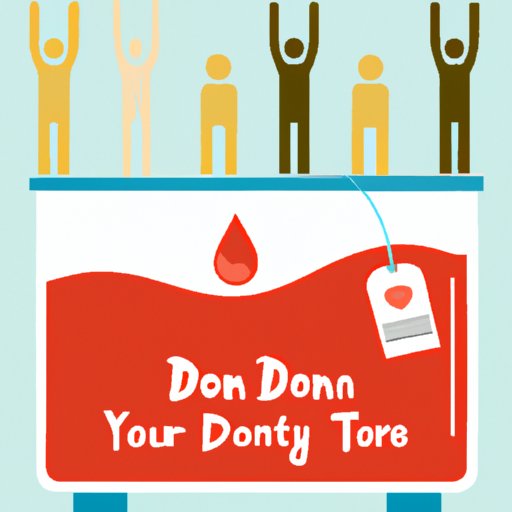Introduction
Donating your body to science is an altruistic decision that can have a positive impact on medical research and society. It involves allowing a medical institution or research facility to use your body after death for scientific study, training, and educational purposes. By donating your body, you can play a part in advancing medical knowledge and helping future generations.
What Happens When You Donate Your Body to Science?
Understanding the process of donating your body to science provides insight into what happens after death and helps to alleviate any concerns about the experience. After death, a medical school or research center will take possession of the body and transport it to their facility for further processing.
The types of donations to science vary depending on the individual’s wishes and the guidelines of the receiving institution. Some people may choose to donate only certain organs or tissues, while others may opt to donate their entire body to science. Additionally, some institutions may permit families to witness the donation process, while other organizations may not allow family members to be present.

How to Make Arrangements for Donating Your Body to Science
Making arrangements for donating your body to science requires careful consideration and planning. Before deciding to donate your body, it’s important to understand the eligibility requirements for donors and the guidelines of the specific institution where you would like to donate your body.
Gathering information about potential donation centers is essential. Researching online and speaking with representatives from local institutions can help you find out more about the process and determine if you meet the eligibility criteria. It’s also important to make sure that you are comfortable with the policies and procedures of the organization.
Once you have determined that you are eligible to donate your body, you should make final arrangements with the institution. This involves signing a consent form and completing paperwork to ensure that the donation can be processed after death. It’s also important to inform your family and friends of your decision so they can provide support and assistance during the process.

The Impact of Donating Your Body to Science
Donating your body to science has a significant impact on medical research and society. Medical researchers rely on donations to help advance their understanding of the human body and develop new treatments and cures for diseases. Donations also enable medical students and professionals to gain valuable hands-on experience in anatomy and clinical medicine.
In addition, donating your body to science can have a positive effect on society as a whole. By donating your body, you can contribute to the advancement of medical knowledge, which can ultimately lead to improved health care for all individuals.
Pros and Cons of Donating Your Body to Science
Before making the decision to donate your body to science, it’s important to consider the advantages and disadvantages of body donation. On the plus side, donating your body can help to advance medical research and provide invaluable experience to medical students and professionals. It also eliminates the need for burial or cremation costs and allows your loved ones to focus on grieving rather than worrying about funeral arrangements.
On the downside, there are some potential drawbacks to donating your body to science. For instance, it can be difficult for family members to accept the fact that you are no longer with them. Additionally, there is no guarantee that your body will be used for research purposes, and some organizations may require family members to pay a fee for transportation or storage.
Conclusion
Donating your body to science is a selfless act that can have a positive impact on medical research and society. It enables medical professionals to gain hands-on experience and contributes to the advancement of medical knowledge. While there are potential drawbacks to donating your body to science, such as the emotional toll on family members, the benefits far outweigh any disadvantages.
If you’re considering donating your body to science after death, it’s important to understand the process and eligibility requirements before making any decisions. Gathering information about potential donation centers and making final arrangements with the institution can help ensure that your body is used for the benefit of medical research and society.
(Note: Is this article not meeting your expectations? Do you have knowledge or insights to share? Unlock new opportunities and expand your reach by joining our authors team. Click Registration to join us and share your expertise with our readers.)
